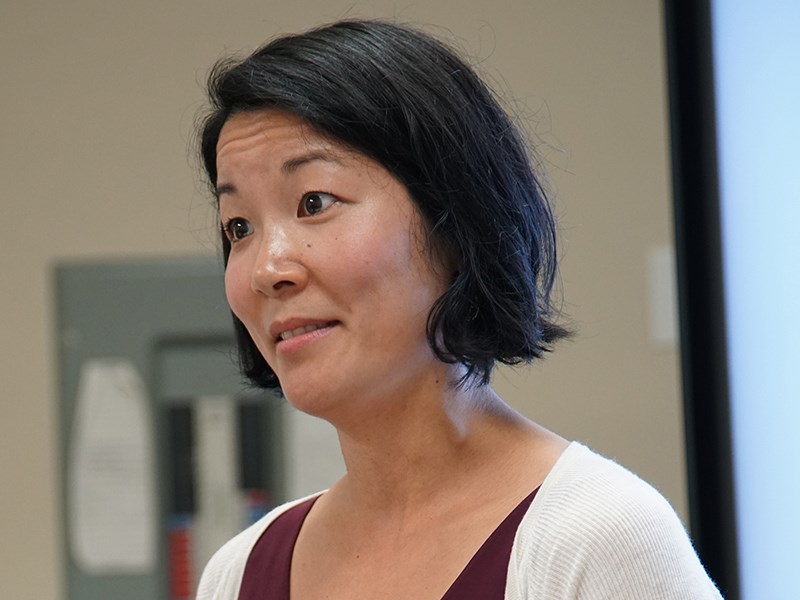Powell River region’s new social planner outlined her responsibilities for the qathet Regional District (qRD) board on Thursday, July 25.
Meriko Kubota, social planner for the regional district, City of Powell River and Tla’amin Nation, appeared at the qRD board meeting to describe her function.
Kubota said she is hosted by City of Powell River, so her office is based in the planning department there, but her role is actually regional.
“This makes very good sense because social issues that are managed under social planning don’t have boundaries within our jurisdiction,” said Kubota. “I appreciate the foresight and leadership this government and the other two have had to actually collaborate on a regional social planner. I really do want to honour that intention and hope to provide social planning to the regional district. When I refer to our community or our region, I truly mean the entire area.”
Kubota said she wanted to give some background on social planning. Not every municipality has a social planner, she added. The terminology, she said, is fairly new, so it’s not always clear what a social planner’s duties entail.
Kubota said this regional board has supported a social planning services bylaw. Social planning is also included in the city’s official community plan and Tla’amin’s community plan.
Kubota said she wanted to share a definition of social planning with the board. She said she was borrowing one from City of Nanaimo that was quite comprehensive.
She added that social planning addresses strategic priorities regarding social equity, cultural diversity and community health issues. Distinct from other forms of planning, which has a focus on lands, buildings and streets, social planning focuses on people.
Social planning works with community-based organizations, federal and provincial ministries, faith groups and city departments that address the region’s critical social issues. Social planners provide support and information to social agencies, bringing together key people to address emerging social issues, delivering community and social service programs and providing information relevant to social action and planning advisory committees.
This committee is made up of representatives from the three local governments, School District 47 and Vancouver Coastal Health. Kubota said she would also be working closely with the three chief administrative officers from the local governments.
The new social planner said she was coming into her role with some great work that happened before her arrival. She said she was coming with a clear work plan.
An official social planning program was provided for the region by a consultant in November 2017, said Kubota. There were four priority areas clarified in that plan. They are: housing, meaning suitable, sustainable housing for all; early childhood/healthy early childhood development for all children; social cohesion throughout the region; and poverty alleviation, or reduced income disparity.
These priorities are well interconnected with one another, according to Kubota.
“I anticipate you will see a number of updates on initiatives either ongoing or new related to these priority areas,” she said.
Her last update for the directors included some tangible items that are in the works. She said the regional district and city together applied to the province for the early childhood grant program and $50,000 has been received.
The objective is to complete an analysis and inventory of the existing childhood facilities in the entire region. With this analysis an action plan can be produced that addresses gaps and provides a rationale to go forward to the province again for funding to support these facilities.
“There’s a lot of funding opportunities now from the province related to childcare and so this planning document report will give us the leverage to be able to take advantage of these opportunities we have right now,” said Kubota.
The other area is a housing needs assessment, which the province has mandated all municipalities to complete, said Kubota. It is a plan to do an analysis regarding the existing housing needs.
The problem with that is the program is for municipalities, said Kubota. The hope is to also look at housing needs from a regional perspective, she added. A working group has been struck with staff members from the three local governments.
“Our intention is to do a regional plan, leveraging this opportunity we have from the province’s funding,” said Kubota. “We anticipate coming to you for your support for that application for the November deadline and from there we’ll be working into 2020 to produce the report.”



